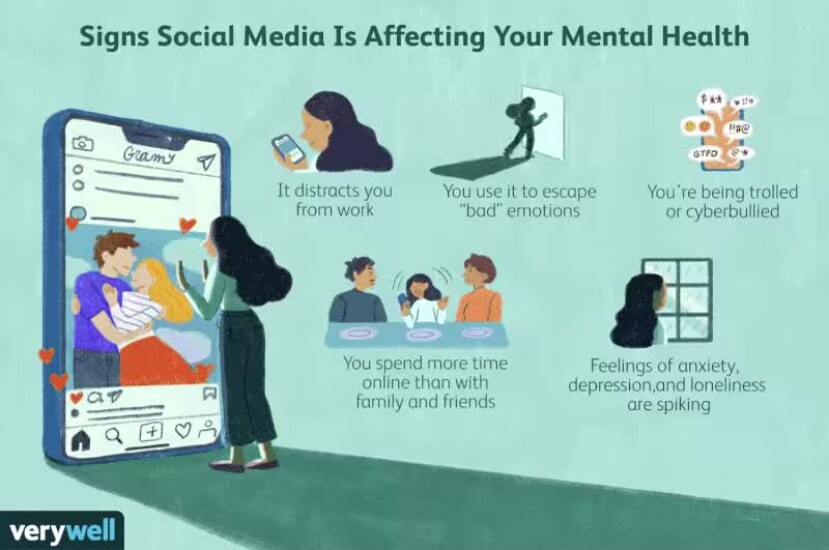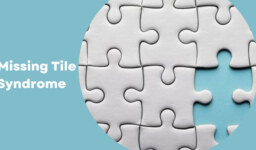In today’s world there exists two worlds and not one; one is very much tangible and physical, that is the world that we reside in and follow our daily life routines the other however is virtual. The virtual world does make our life easier and also makes everything available with just a finger tap away and everything ready for us at our every beck and call. The youth of our society are the ones that have taken the most compelling use of this social phenomenon. Something of such power and global reach can’t just have a good side just like a coin has two sides and there are two sides to every story. The almighty internet is not so good after all.
Using social media has indeed led to us being more connected and knowing what’s happening around the world easier but it also leads people to compare their lives with others. The comparisons to the unreal standards that someone lives their lives or the make-believe standards of beauty are contributing factors to the deteriorating mental health, self-doubt and also self-confidence of the youth of this generation. What is “beautiful” for someone might not be beautiful for all, so the preconceived faux standards of beauty are just ridiculous to think about. People on social media platforms like Instagram upload stuff to show what’s happening in their lives, but is it necessary that what they upload is not just for show, platforms as enormous as Instagram and Facebook may be misleading, one might even go as far as to say that people on these platforms work on the notion of “show the best and hide the rest”. nobody can be sure if what they’re seeing is true or just a front one puts up to show off.
Constant comparisons of one’s life more often than not lead to a callous cycle of jealousy. Seeing someone having fun, be it going out and hanging out with their friends or just simply for something as small as shopping can be envy-inducing for some people. Seeing someone getting engaged or getting married or even having a successful professional career oftentimes leads to jealousy and can be listed as one of the reasons for the exponential decrease in someone’s mental health. Without a doubt constantly comparing one’s life to somebody else’s cannot be healthy. The constant longing to be someone that you’re not can get tiring very quickly. The saying that “grass is always greener on the other side” cannot be more true in this context. The constant need to one-upping someone can be horrendous for mental health and can lead to nothing but bad things.
Comparing the number of likes and comments one gets on their latest upload is also a thing nowadays. When someone thinks the picture they are about to upload is up to the “beauty” standards of social media, they gauge the number of likes and comments they are going to get on it. And if the amount they thought does not manage to match the amount they got is a huge blow to their egos and mental health. Not only that if they see someone they know or sometimes even strangers getting more likes than them they do not take it well. Surprisingly this is a common occurrence on social media platforms even some as humongous as Instagram and Facebook which have users from all around the globe. A while ago it was believed that getting rid of the feature of showing the number of likes will be a good way to solve this problem however that is the farthest thing from the truth.
Speaking of the number of likes and comments, the topic of the number of “followers” or in some cases “friends”. Having a handsome number of “followers” or “friends” in the virtual world might not correlate to the number of friends one has in the tangible-real world. Someone can be entirely lonely in their real life or not have anyone to go to or talk to in dire situations of need but still have a fairly large number of “friends” on social media. Which means having a huge number of “friends” on social media does not exactly mean that someone is social in real life. Similarly on the other hand if someone has less “followers” on social media does not imply that they do not have a social life whatsoever.
Then there are the aspects of cyberbullying on social media that adversely affect a person’s mental health. There are numerous cases per day on this particular issue on social media platforms. Well cyberbullying usually entails a person or group of people threatening or sending hostile messages, usually targeting innocent people and putting them into precariously compromising positions leaving them with little to no choice and doing whatever is asked of them and easily get trapped in their vicious vendettas. It leads to quite serious mental health issues in both the youth and adults. Oftentimes the offenders spread rumours about a certain person that they are targeting, rumours may time and time again becomes pretty graphic in the sense of leaking personal pictures of someone or photoshopping pictures and uploading them on social media platforms to shame the victim. It not only leaves negative mental but also negative psychological scars that are hard to move on from.
As previously mentioned, what one might see on social media does not necessarily mean that it’s true, there is a thing called catfishing that we need to keep in mind while being on the internet, specifically on social media. Catfishing is treacherous when on the internet a person creates a false or faux identity to victimize someone specific. Normally it leaves a negative impact on the victim’s mental health, it leads to the person’s mental health spiralling into a deep dark hole.
Most commonly catfishing is done with the intent of monetary gains, the culprit pretends to be someone they are not for as long as they need to get what they want from the victim. Many times they pretend to develop an emotional bond with the victim to get easily whatever it is their intentions are. Once the work is done and they get what they want they simply disappear into the wind like they never existed before, that is how easy it is to vanish from the internet.
Other times which is more often than not, the culprit pretends to be someone attractive and even of a younger age to gain sexual favours from the innocent people on the internet i.e, social media. When they attain their trust often they call the victim to meet up with them for sexual favours or even abuse in some cases, and when they do meet and the victim ends up realizing that the someone they thought how they are, is not who they thought they are. This leads to a downward spiral of their emotions, leading them to think about how could they have been as stupid as to easily fall into a trap. All these things leave a stain difficult to remove from their soul, leaving them to wallow in self-pity and learn to live with it which is not exactly healthy for their mental health.
Though there is no doubt that the internet has indeed made our lives easier than it ever was before, as already discussed above it also has a humongous set of users which affects them daily. We may not even know that the person that is smiling and laughing in front of us may be facing the negative side effects of the internet. It’s a depressing thought and no matter how hard it is to accept this is the reality of our world, the fact indeed is like a jagged pill that is hard to swallow, but it is the cold hard truth.









